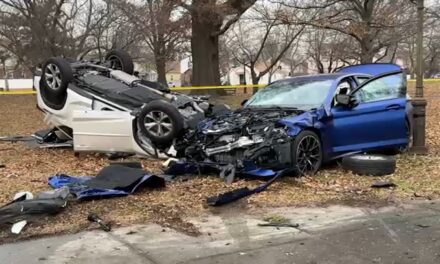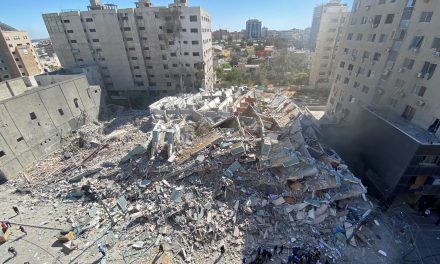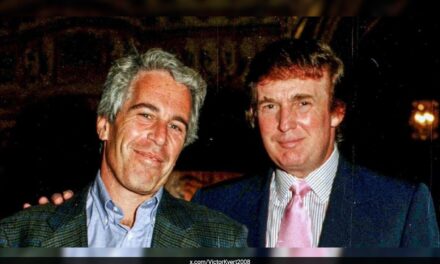I don’t think we can directly blame the Trump administration for the crises we’re having at our airports with air traffic control, because it seems the problems were decades in the making. But when we look at how serious these problems are, it has to be acknowledged that the administration has done everything wrong since they came back to power in January.
At New Jersey’s Newark Airport, the air traffic control equipment failed on Sunday for 45 minutes. This followed shorter outages on April 28th and May 9th. Then, on Monday, “as many as 20 pilots flying into the Denver International Airport…lost contact with air traffic controllers for up to six minutes due to multiple radio transmitter outages.” This is making air travel in the United States unsafe, but only part of the problem is technological. There is, and has been, a chronic national shortage of air traffic controllers. According to staffing standards the Federal Aviation Administration (FAA) developed with its union, we’re about 3,000 controllers short of what is needed.
In early March, there was a blowup between Transportation Secretary Sean Duffy and Elon Musk during a cabinet meeting in the White House over Musk’s efforts to fire controllers “despite ongoing plane crashes and flight-safety concerns.” Musk justified his purge by arguing that “diversity, equity, and inclusion (DEI) hires were in control towers” and needed to be removed. Duffy reportedly responded, “What am I supposed to do? I have multiple plane crashes to deal with now, and your people want me to fire air traffic controllers?”
Then, April 10, “two American Airlines jets clipped wings on the taxiway at Reagan Washington National Airport outside Washington, D.C. No one was injured in the minor collision, in which six members of Congress were among the 143 passengers.”
Let’s put this all in full context:
Just two weeks before, on March 28, a formation of four military jets on their way to a flyover of Arlington National Cemetery came within five seconds of colliding with a commercial Delta flight also taking off from Reagan. The harrowing incident came one day after a fistfight broke out among employeesin the Reagan air traffic control tower.
The incidents occurred at the same busy airport where 67 people died two months earlier on January 29, when an Army helicopter crashed into a passenger plane in midair. But crashes and near-misses seem to be happening all over: Two days after the deadly helicopter crash, a medical jet crashed in Northeast Philadelphia, killing everyone on board and an additional person on the ground. Then on February 17, a Delta flight from Minneapolis carrying 80 passengers crashed, skidded, caught on fire and turned upside down in Toronto. In two separate incidents on the morning of February 25, an American Airlines flight aborted its descent in Washington to avoid a collision, while a Southwest plane emergency aborted its landing in Chicago to avoid hitting a private jet that had entered the runway without authorization.
As for blaming DEI, Secretary Duffy isn’t blameless. After the January 29 crash, Duffy joined President Trump in attempting to assign responsibility to DEI hires for the tragedy. But when Musk followed up by firing over 400 probationary FAA employees, Duffy realized he had a problem and that he was going to be responsible if he didn’t fight back.
On the technology side, Musk is trying to exploit the problem by cancelling a pre-existing contract with Verizon to upgrade systems so that he can have his Starlink company win the business. Meanwhile, Trump is pushing for safety deregulations, which seems counterintuitive in the present circumstances, to say the least.
One thing I will say is that a lot of long-boiling issues with flight safety seem to have come to a head right at the beginning of Trump’s second term, and it requires urgent action. For this reason, I don’t think anything, including the Verizon contract, should be sacrosanct. The president could be justified in taking swifter action than can be provided by Congress. There are lives on the line, and the integrity and reputation of a vital industry, too.
But, so far, what we’ve seen appears primarily to be exacerbating the risks rather than mitigating them.
In the past, I’ve worried about plane malfunctions and pilot error and inclement weather, but now I have to worry that my plane will have to land without any communication with the control tower. And I have no reason to have any confidence that the fascist regime will fix this. In fact, I have good reason to fear the opposite.








Listen, it’s happening with Trump in office and after he and his regime started firing federal employees, including federal employees with the FAA.
This is 100% Trump’s fault. The time for trying to be “fair” is long long gone.
Any and every issue from January 20 2025 to January 20 2029 is 100% Trump’s fault.